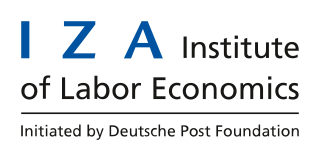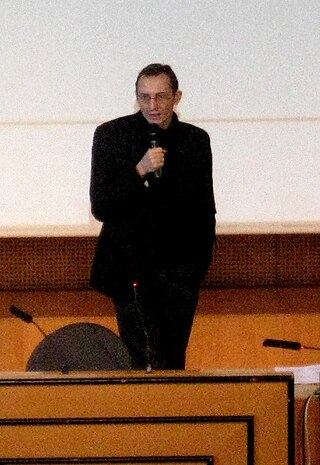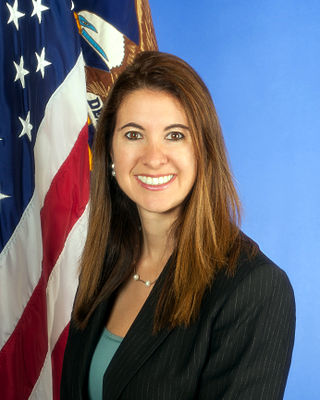A minimum wage is the lowest remuneration that employers can legally pay their employees—the price floor below which employees may not sell their labor. Most countries had introduced minimum wage legislation by the end of the 20th century. Because minimum wages increase the cost of labor, companies often try to avoid minimum wage laws by using gig workers, by moving labor to locations with lower or nonexistent minimum wages, or by automating job functions. Minimum wage policies can vary significantly between countries or even within a country, with different regions, sectors, or age groups having their own minimum wage rates. These variations are often influenced by factors such as the cost of living, regional economic conditions, and industry-specific factors.

Unemployment, according to the OECD, is people above a specified age not being in paid employment or self-employment but currently available for work during the reference period.
Full employment is a situation in which there is no cyclical or deficient-demand unemployment. Full employment does not entail the disappearance of all unemployment, as other kinds of unemployment, namely structural and frictional, may remain. For instance, workers who are "between jobs" for short periods of time as they search for better employment are not counted against full employment, as such unemployment is frictional rather than cyclical. An economy with full employment might also have unemployment or underemployment where part-time workers cannot find jobs appropriate to their skill level, as such unemployment is considered structural rather than cyclical. Full employment marks the point past which expansionary fiscal and/or monetary policy cannot reduce unemployment any further without causing inflation.
Employment is a relationship between two parties regulating the provision of paid labour services. Usually based on a contract, one party, the employer, which might be a corporation, a not-for-profit organization, a co-operative, or any other entity, pays the other, the employee, in return for carrying out assigned work. Employees work in return for wages, which can be paid on the basis of an hourly rate, by piecework or an annual salary, depending on the type of work an employee does, the prevailing conditions of the sector and the bargaining power between the parties. Employees in some sectors may receive gratuities, bonus payments or stock options. In some types of employment, employees may receive benefits in addition to payment. Benefits may include health insurance, housing, disability insurance. Employment is typically governed by employment laws, organisation or legal contracts.
David Graham Blanchflower,, sometimes called Danny Blanchflower, is a British-American labour economist and academic. He is currently a tenured economics professor at Dartmouth College, Hanover, New Hampshire. He is also a research associate at the National Bureau of Economic Research, part-time professor at the University of Glasgow and a Bloomberg TV contributing editor. He was an external member of the Bank of England's interest rate-setting Monetary Policy Committee (MPC) from June 2006 to June 2009.

The IZA - Institute of Labor Economics, until 2016 referred to as the Institute of the Study of Labor (IZA), is a private, independent economic research institute and academic network focused on the analysis of global labor markets and headquartered in Bonn, Germany.
Employment protection legislation (EPL) includes all types of employment protection measures, whether grounded primarily in legislation, court rulings, collectively bargained conditions of employment, or customary practice. The term is common among circles of economists. Employment protection refers both to regulations concerning hiring and firing.
David Neumark is an American economist and a Chancellor's Professor of Economics at the University of California, Irvine, where he also directs the Economic Self-Sufficiency Policy Research Institute.

Étienne Wasmer is a French professor and economist currently holding a Professorship at New York University in Abu Dhabi. Wasmer mainly focuses on the fields of labor economics, job search theory, discrimination and human capital. He teaches microeconomics and labor economics.

John Micklewright is Professor Emeritus of Economics and Social Statistics at UCL Social Research Institute, University College London.

Dennis J. Snower is an American-German economist, specialising in macroeconomic theory and policy, labor economics, digital governance, social economics, and the psychology of economic decisions in "caring economics". He is President of the Global Solutions Initiative in Berlin, Professorial Research Fellow at the Institute for New Economic Thinking at Oxford University, Fellow at the New Institute in Hamburg, and Non-resident Fellow of the Brookings Institution in Washington, D.C. He is former president of the Kiel Institute for the World Economy. His prominent labor research explores the role of “insiders” and “outsiders” in generating unemployment and macroeconomic fluctuations; his socio-economic research examines how social groups shape economic behavior; his psycho-economic research explains how economic decisions depend on psychological motives; and his macroeconomic research investigates why inflation and unemployment can move in opposite directions even in the long run.

Adriana Debora Kugler is a Colombian-American economist. She is the U.S. executive director at the World Bank, nominated by President Joe Biden and confirmed by the U.S. Senate in April 2022. She is a professor of public policy at Georgetown University and is currently on leave from her tenured position at Georgetown. She served as the Chief Economist to U.S. Labor Secretary Hilda L. Solis from September 6, 2011 to January 4, 2013.
Alan Manning is a British economist and professor of economics at the London School of Economics.

Youth unemployment is the situation of young people who are looking for a job but cannot find a job, with the age range being defined by the United Nations as 15–24 years old. An unemployed person is defined as someone who does not have a job but is actively seeking one. To be qualified as unemployed for official and statistical measurement, the individual must be without employment, willing and able to work, of the officially designated "working age" and actively searching for a position. Youth unemployment rates tend to be higher than adult rates in every country in the world.

Clair Brown is an American economist who is Professor of Economics and Director of the Center for Work, Technology, and Society at the University of California, Berkeley. Brown is a past Director of the Institute of Industrial Relations (IRLE) at UC Berkeley. Brown has published research on many aspects of how economies function, including high-tech industries, development engineering, the standard of living, wage determination, poverty, and unemployment.
The rate of youth unemployment in South Korea fluctuated in the 9–11% range between 2001 and 2014. It was above 10% in 2018 and down to 7.1% by the end of 2019 - the lowest level since 2011.
Ragui A. Assaad is an Egyptian economist and Professor of Planning and Public Affairs at the Humphrey School of Public Affairs. His research interests include labour economics, inequality and the economics of education. He ranks among the most prominent economists of Egypt.
Shelly J. Lundberg is an economist and currently holds the positions of Leonard Broom Professor of Demography at the University of California, Santa Barbara, where she serves as Associate Director of the Broom Center for Demography. Lundberg is one of the world's leading population economists.

Pierre Cahuc is a French economist who currently works as Professor of Economics at Sciences Po. He is Program Director for the IZA Institute of Labor Economics's programme "Labour Markets" and research fellow at CEPR. His research focuses mainly on labour economics and its relationship with macroeconomics. In 2001, he was awarded the Prize of the Best Young Economist of France for his contributions to economic research. He belongs to the most highly cited economists in France and Europe's leading labour economists.








